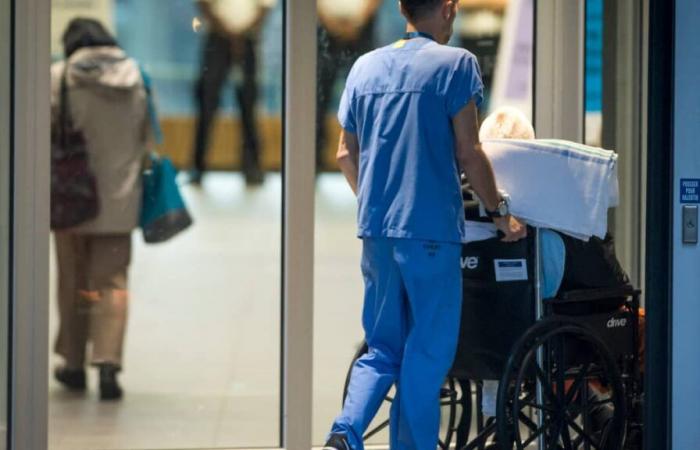Do you feel like everyone around you is sick? You are not dreaming. Several respiratory infections are starting to gain ground during this period that is particularly favorable for their spread. Here’s what to watch for in the coming weeks.
• Also read: No, fluoridation of drinking water is not dangerous for health
• Also read: Up to 5 weeks delay: women testify to the lack of access to abortion in Quebec
“It’s the same thing all the time. As soon as fall sets in, our habits change. We are more indoors, which is an environment conducive to the spread of respiratory viruses or bacteria that cause gastric symptoms,” recalls epidemiologist and doctor of public health at the University of Montreal, Kevin L’Espérance. .
There’s no need to panic, but you still need to be careful as the holidays approach.
Hospitalizations and clinic visits for coughs and fevers are on the rise in the province. The occupancy rate of Quebec’s emergency rooms reached 122% Thursday afternoon, and climbed well beyond 100% in a majority of regions.
For the moment, COVID-19, respiratory syncytial virus (RSV) as well as enteroviruses and rhinoviruses, which cause symptoms similar to those of a cold, are the most common infections observed, according to the microbiologist-infectious disease specialist and pediatrician at CHU Sainte-Justine, Caroline Quach-Thanh.
In pediatrics, COVID is being replaced by common coronaviruses which can lead to sneezing, sore throat, coughing, gastroenteritis or diarrhea. There is also para-influenza, a “cousin” of the flu which causes similar symptoms.
Good news, emphasizes Dr. Quach-Thanh: cases of whooping cough are “finally” decreasing among children.
But bacterial infection Mycoplasma pneumoniaewhich causes cough, sore throat and fatigue, is still very present in children, specifies the specialist doctor.
No flu, less COVID and no more RSV
The influenza season is a little late this year. The level of circulation is considered “zero or very low” by the National Institute of Public Health of Quebec (INSPQ), while the virus is normally more present at this time of year.
“We risk having a slightly later season,” points out INSPQ public health specialist Christine Lacroix.
Although it continues to actively circulate in the population, the COVID-19 virus has been on the decline for several weeks in Quebec, again according to the INSPQ. His activity level is considered “moderate.”
The infection to fear according to experts: RSV.
“It’s his time, like every year in the fall and during the holidays. It is actively circulating and its positivity percentage has been increasing since October,” warns Dr. Lacroix.
How to protect yourself?
The most effective way to avoid any respiratory infection remains vaccination, recall the experts consulted by 24 hours.
• Also read: Do you have pain everywhere after a vaccine? We explain the phenomenon of “vaccine hangover”
“We must give ourselves at least two or three weeks before the parties office. Influenza is not yet circulating widely, but generally increases during the holiday season. It remains important to get vaccinated against the flu and COVID,” explains Caroline Quach-Thanh.
It also invites people aged 75 and over, those who are immunocompromised and babies who were less than 6 months old on October 1, 2024 to receive the RSV vaccine.
Basic prevention measures such as wearing a mask if you have a cough and isolating yourself at home if you have a fever are still required.
“Society is open, we go to school, to work, we see our family: contracting viruses is therefore inevitable,” specifies Dr. Kevin L’Espérance.
“We have had a collective trauma since the COVID-19 pandemic, but I do not advise people to avoid social interactions. It would not be beneficial in terms of mental health,” he adds.






